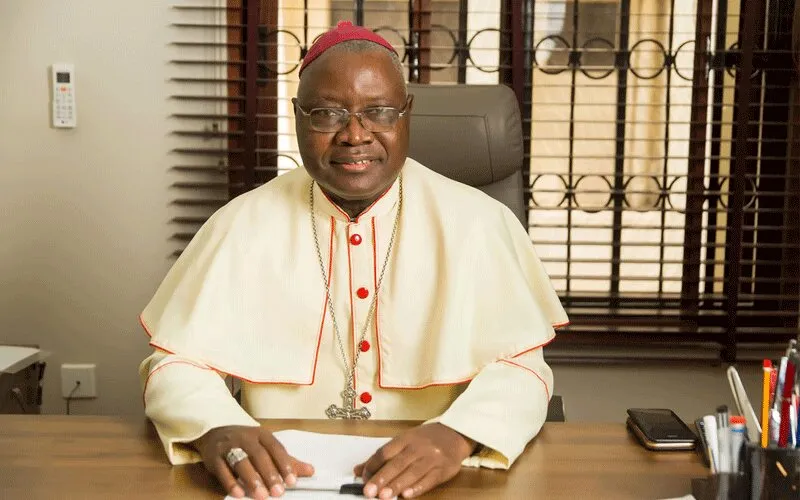Sharing one of the last terrorist activities in Nigeria, the Archbishop of Abuja said, “As I was preparing my reflection on Christians unjustly detained, my Priest in Abuja was kidnapped and is still in captivity. Kindly pray for his safe release.”
“In Nigeria we have the harsh economic and social impact of COVID-19 pandemic. We have cases of abductions, detentions and killings by terrorist groups. Criminal headsmen, bandits and gangs of kidnappers to contend with. We all have this,” said Archbishop Kaigama.
According to the 62-year-old Nigerian Prelate, it is no longer news that Boko Haram is “vicious in their attacks, reckless in their killings, legendary in their hatred of Christians and Christianity.”
He said that kidnappers also apprehend innocent citizens in the bushes, on the highways and homes.
“Last week in one of our parishes in Abuja Archdiocese behind the parish house, five children of the same parents were kidnapped and on the following day, a woman preparing for her church wedding was also kidnapped. They have not been found,” the Nigerian Prelate narrated.
(Story continues below)
He highlighted the story of Teenager Leah Sharibu, one of more than 100 schoolgirls kidnapped by extremist group Boko Haram but the only one not released, because she refused to renounce her Christian Faith who, the Prelate said, had become “a symbol of Christian resilience against forced conversion.”
“We must however not forget the remaining 112 Chibok girls and others who are held captive with many either dead or forcefully married off,” he said.
The massacre of a seminarian Michael Nnadi, one of the four kidnapped from the Good Shepherd Major Seminary and the killing of Protestant and Catholic Priests remain a great tragedy, the Archbishop recalled.
“The activities of herdsmen are relentless in the predominantly Christian parts of Northern-Central Nigeria,” he recounted, and added, “Many Christians smell a rat as the leadership of the army, air force, police and other paramilitary bodies are in the hands of one geopolitical or Religious group.”
Archbishop Kaigama who is chairman of Nigeria’s Plateau State-convened “Interreligious Committee for Peace” has been involved in promoting mutual understanding between Christians and Muslims.
He decried what he said “has long been alleged” that recruitments into the army, immigration, customs, civil service and others seem to favour North Muslims.
“Equally disturbing is why many predominantly Christian populations are pressured to get a Moslem among them to be their Chief. The abduction and forceful conversion of underage girls is real. On the other hand, Moslem girls who freely choose to marry Christian men face death threats,” he lamented.
The Archbishop cautioned that there may be no future for Christians in the Christian dominated Middle belt and other parts of Northern Nigeria if groups like Boko Haram and allied terror groups continue with their harassment and calls on Western nations to intervene.
“Western nations need to pay the same attention to this reality as they vigorously do in their countries in the case of COVID-19,” he said, and added, “They must prevail on Nigerian leaders to be honest and single-minded in the war against terror. The UK and other nations with Christian roots should speak and act more in favour of freedom.”
He called for freedom for Christians in Northern Nigeria to acquire land for Christian Religious purposes. At the moment, Christians are reportedly not allowed to buy land for construction of churches in many parts of Northern Nigeria.
“I believe that together with the United Nations, the UK, the European Union and key countries like the United States can do more in sharing strategic intelligence information with Nigerian and give more technical support,” Archbishop Kaigama said.
He added, “The humanitarian support given is well appreciated and very greatly needed even now. But there must be an effective monitoring of its use.”
Agnes Aineah is a Kenyan journalist with a background in digital and newspaper reporting. She holds a Master of Arts in Digital Journalism from the Aga Khan University, Graduate School of Media and Communications and a Bachelor's Degree in Linguistics, Media and Communications from Kenya's Moi University. Agnes currently serves as a journalist for ACI Africa.








